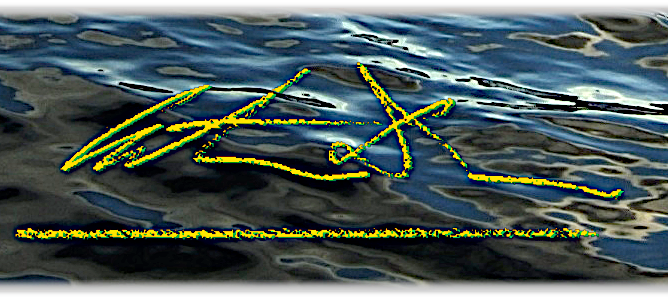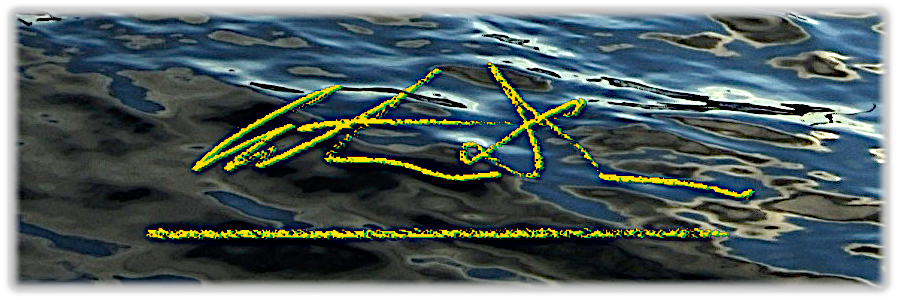More and more it’s fragments that feel true.

Fragments show their edges. Edges that intrude into the illusion of completion. Edges that cannot be ignored.
Fragments insist there is more we don’t see. Can’t see.
Fragments show us how we “piece things together.” Even the smallest, most torn fragment leads us to fill-out its story. This shows us our contribution to what we make of things. Shows us that we’re building a story not consuming some outside totality. Shows us. Insists that we not forget that what we build on it has shaky foundations.
To be comfortable with fragments
is to have seen through false totality,
having broken the cycle
of fear, anger, conclusion, destruction.
It breaks this cycle at every point. It opens the possibility for wonder instead of fear. It shows us how little there is for certain. This leaves us no justification for our anger. Shows us how we build conclusions on, well…, on fragments. And shows us that we are heirs to destruction. Everything is already broken. Why should we add to this with our own acts of violence?
Fragments provoke us to create.
Like what you find here?
Like what you find here?
Consider making a one-time donation
Choose an amount
Or enter a custom amount
Your contribution is appreciated.
Donate©Antonio Dias, 2010 – 2023
Unauthorized use and/or duplication of this material without express and written permission from this blog’s author is strictly prohibited.
Excerpts and links may be used, provided that full and clear credit is given to Antonio Dias and Antonio Dias Design with appropriate and specific direction to the original content.


What is to be created out of fragment?…- other than further fragmentation…
Can you please elaborate in few words what you mean by
“fragments provoke us to create?”
LikeLike
Julien,
Thank you for asking.
The question comes down to a distinction between fragments found and pursuing fragmentation. Fragmentation is the result of acts of division. An act of fragmentation only leads to further fragmentation. That’s how we got here. We are surrounded by fragments. The results of all that fragmentation. The question behind this “fragment” is, What do we do with the broken pieces?
What came to mind was that acknowledging fragments as broken; and that in our situation we are surrounded by fragments; we remain trapped in futility if we insist on forcing these bits into incoherent wholes. – Incoherent wholes sounds like a Proprioceptive Punk Band, how about incoherent entities? An awkward way of getting at what is hidden behind the stock phrase, False Narratives.
If we can see the truth in the fragments – the results of existing fragmentation, not saying that increasing fragmentation is a way forward – then we get insight into how everything we take in through our senses is only a fragment of the whole, of the everything that extends infinitely beyond our knowing. We stop feeling the need to tidy-up our perceptions by turning them into tightly bound stories, bundled narratives that mask fragmentation under some applied form of pseudo-order.
From this unfortunately unclear starting place the rest of the piece follows. You see if we cannot allow ourselves to perceive and take-in the results of the fragmentation around us; if we hide from it; or hide it behind a false story that insists everything is fine; we never get to the point of seeing or understanding what is involved in creation. We are stumped by the act of creation. Have no clue how to begin. It is locked away behind a self-induced blindness. A fantasy that creation is some act done by others. By perfect beings who achieve without effort – and by effort I don’t mean “trying;” but doing. At that point we close and lock the door.
We need to face and understand two things to get on: What we perceive and all that results from that beginning is always just a fragment of a whole we can never perceive in a fashion that has it laid out in front of us for us to know. And, the only way to partake in creation of the whole; and not be trapped in roles that lead only to destruction; is to see the fragments as fragments and find ways to make new and unforced connections.
Does this help?
Tony
LikeLike
Yes, well elaborated in the reply. So I’ll try to parallel this from my own point of origin. An insight into our fragmented mental state is an eruption of wholeness. Fragmentation that we try to end (to bring to conclusion) creates fragmentation between “us” and “the problem.” Fragmentation that is met with passionate interest in what it implies evokes a mind that is not fragmented, not divided on itself, not repressing. Lately I’m finding some clarity by distinguishing fragmentation met with any kind of resistance or positive thinking as focused attention; and fragmentation met with passionate interest and non-resistance as peripheral (or wide-eyed or unbroken or wide) attention. My nephew Justin and I also had a late-night talk this weekend where we talked about this non-resistance to our own fragmentations (idiocies perhaps) from this angle: These eruptions of ego — if met without resistance — reach their potential and die a most self-deprecating and compassionate death. But if we try to do anything to prevent or limit these fragmentary outbursts (which are almost continuously bursting as a general rule in our zeitgeist) then the natural self-deprecating self-recognition which brings the outburst to an end is blocked. The eruption continues, rather than dying naturally. We fight it, prolonging it, fragmenting even more into the “part of me that wants to improve” and the “idiot me.” Good intentions of that sort are where some of the biggest wrong assumptions about the world lie buried.
LikeLike
Look at the relevance of this K quote. Fragmentation and frustration are the same movement from different angles. Here’s the quote:
LikeLike
Jeff,
Thanks for joining in!
I just watched this video of Thich Nhat Hanh in which he talks about bringing a mother’s love to our anger. How embracing that which we fear as a loss of control – for example – allows it to flower.
LikeLike